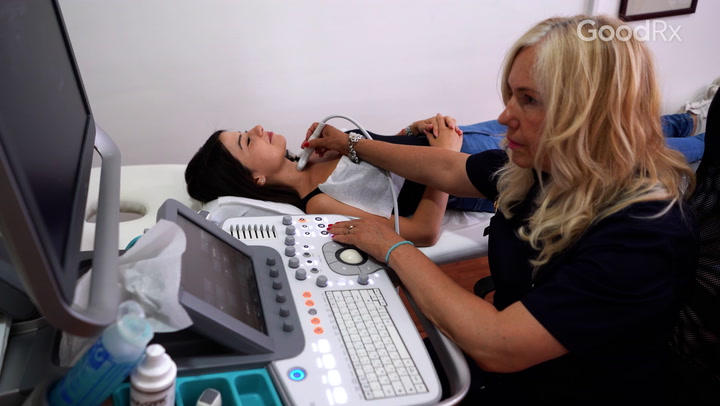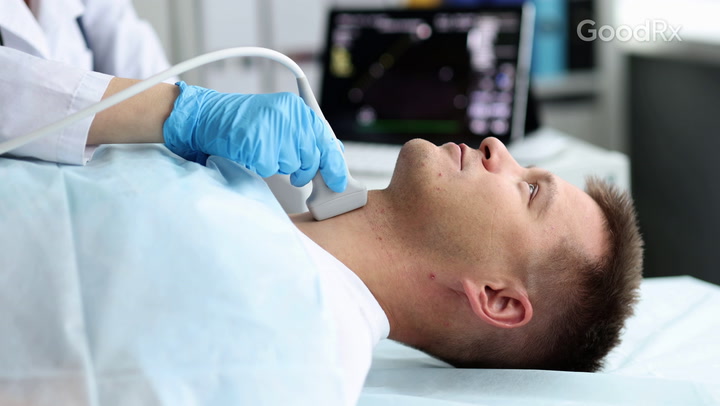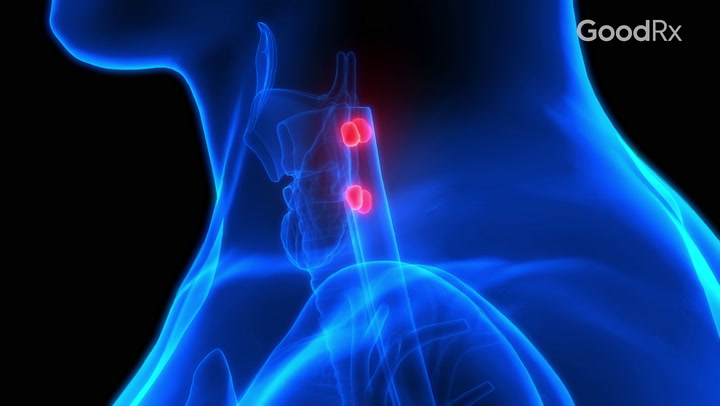
What Causes Hypothyroidism? Common Reasons for a Low or Underactive Thyroid
Key takeaways:
Hypothyroidism has several well-known causes. The more common ones include an autoimmune condition, iodine deficiency, and specific medications and treatments.
Many treatments for hyperthyroidism can actually lead to hypothyroidism. These include both medications and procedures done on your thyroid.
Sometimes, the problem isn’t in your thyroid gland at all. Instead, it can start in your brain — specifically the part that controls your thyroid gland.
Table of contents

The thyroid is a sensitive gland. It responds to many different signals and conditions in your body. It can also be vulnerable to injury from chronic medical conditions, medications, and even nutritional deficiencies. These things can lead to decreased thyroid hormone levels, and low thyroid function, leading to hypothyroidism.
So, if you have recently been diagnosed with hypothyroidism — or you’re wondering if your thyroid hormone levels are low — it helps to understand which factors affect thyroid function. Let’s take a closer look at eight possible causes of hypothyroidism.
1. Autoimmune thyroiditis (Hashimoto’s disease)
Autoimmune thyroiditis, also called Hashimoto’s disease, happens when your immune system makes proteins called anti-thyroid peroxidase (anti-TPO) antibodies These antibodies lead to inflammation of your thyroid gland. They attack the thyroid the same way your immune system would attack viruses or bacteria.
Search and compare options
Over time, this can damage your thyroid gland and lower how much hormone it makes. This condition is most common in women during midlife, but it can happen at any age.
2. Treatments and medications for other medical conditions
Sometimes, treatments for other conditions can result in hypothyroidism. These treatments include:
Thyroidectomy: This is the surgical removal of part or all of your thyroid. It’s used to remove thyroid nodules, goiters, or cancer.
Thyroid ablation: This treatment for an overactive thyroid (called hyperthyroidism) uses radioactive iodine to destroy parts of your thyroid. Sometimes, it can cause your thyroid to make too little hormone.
Radiation: People who get radiation for cancer near the thyroid — like the head, neck, or chest — may have some radiation absorbed into their thyroid. This can damage thyroid tissue.
Medications can also cause hypothyroidism. Common ones include methimazole and propylthiouracil, which are both used to treat hyperthyroidism. Like an ablation, they can also lower hormone levels too much. Other medications that can cause hypothyroidism include:
3. Iodine deficiency
Your thyroid gland needs iodine to make thyroid hormones. But your body doesn’t make iodine on its own, so you have to get it from the foods you eat.
Medications and hypothyroidism: From amiodarone to lithium, learn which medications can cause hypothyroidism.
Do you have to treat hypothyroidism? Leaving hypothyroidism untreated can affect many of your body systems and lead to these complications.
Natural treatments for hypothyroidism: Learn which natural remedies can help manage symptoms like low energy and feeling tired.
If you don’t get enough iodine in their diet, your thyroid can’t make enough thyroid hormone. When this happens, your thyroid cells work in overdrive to try to make more. Hypothyroidism from iodine deficiency can cause a goiter — an enlarged thyroid gland.
Hypothyroidism from iodine deficiency is more common in developing countries. In the U.S., table salt usually has iodine added to it. So, it’s rare to see iodine deficiency as a cause of hypothyroidism in this country. However, it’s important to keep in mind that designer salts — like pink Himalayan salt — usually don’t have iodine added to it.
4. Subacute thyroiditis
Temporary hypothyroidism can happen when you have subacute thyroiditis. This is usually caused by a viral infection and can affect anyone. It causes mild viral symptoms — like fever, fatigue, and body aches — and then thyroid swelling. This swelling can either be painful or painless.
Subacute thyroiditis can cause abnormal thyroid hormone levels — high or low — but this isn’t permanent. Subacute thyroiditis can last weeks to months, but it eventually goes away.
5. Riedel’s thyroiditis
Riedel’s thyroiditis is a rare type of thyroid inflammation. For unknown reasons, scar tissue forms in the thyroid and replaces healthy tissue. This leads to hypothyroidism, since scar tissue can’t produce thyroid hormone like a healthy thyroid.
6. Infiltration
Infiltration occurs when diseases that affect other parts of your body also affect your thyroid. These diseases can damage your thyroid and stop it from making enough thyroid hormone. In these cases, healthy thyroid tissue is invaded — or infiltrated — by non-thyroid tissue that doesn’t work the same way.
Examples of these infiltrative diseases are:
Lipomatosis
Langerhans cell histiocytosis
Hemochromatosis
7. Congenital hypothyroidism
Some babies are born with an underactive or underdeveloped thyroid. In most cases, the thyroid gland is either missing, smaller than it should be, or in the wrong place. Any of these can lead to low thyroid hormone levels.
It’s usually diagnosed in infants at birth, and affects girls more than boys. If left untreated, hypothyroidism can cause many health problems in infants. This is why most countries test babies for thyroid issues on the second or third day after birth.
8. Secondary hypothyroidism
Secondary hypothyroidism — also called central hypothyroidism — happens when your thyroid gland doesn’t get the right signals from your brain. The problem isn’t your actual thyroid gland, but faulty signaling tells your thyroid gland to produce less hormone.
Think of it like a TV that won’t turn on because the remote control is broken. The TV works, but it can’t get the signal it needs. In this case, the thyroid is the TV, and the brain is the remote.
Your brain sends signals to your thyroid through two main parts: your pituitary gland and hypothalamus. Secondary hypothyroidism can happen if there’s a problem in your brain that affects these areas. This includes:
Tumors or growths
Infections
Strokes that affect the pituitary gland or hypothalamus
Damage from radiation therapy
Medications can also get in the way of this signaling pathway. These include:
What are the symptoms of hypothyroidism?
Some people with hypothyroidism don’t have any symptoms. When people do have symptoms, they can be vague or subtle, like:
Fatigue (feeling tired)
Cold intolerance (feeling cold when others aren’t)
Muscle aches
Different types of hypothyroidism have different causes. So, they can vary in how they feel and how they’re treated.
Finding the cause of hypothyroidism
When you see a healthcare professional about a new diagnosis of hypothyroidism, here’s what to expect during your visit:
A head-to-toe review of your symptoms
A detailed physical exam, with a focus on your thyroid gland
A review of your blood work
A discussion about other testing that you might need to get the diagnosis right
Every person is unique, and sometimes a diagnosis can be difficult to make. Not every case fits into the definitions discussed here.
But almost all treatments for hypothyroidism are the same no matter the cause. If your body isn’t making enough thyroid hormone, a healthcare professional will prescribe you replacement thyroid hormone.
Frequently asked questions
Some people are more likely to develop hypothyroidism. Risk factors include being female or over the age of 60, having a family history of thyroid disease, or having had thyroid surgery. Another risk factor is having certain autoimmune diseases, for example lupus or rheumatoid arthritis.
In the U.S., Hashimoto’s disease is the most common cause of hypothyroidism. In this autoimmune disease, your immune system attacks your thyroid. This causes inflammation and your thyroid can’t make enough thyroid hormone.
In areas of the world where people don’t get enough iodine in their diet, low iodine intake is the most common cause of hypothyroidism.
In general, women are more likely than men to get hypothyroidism. The most common cause is Hashimoto’s disease. Other common causes include not getting enough iodine, temporary hypothyroidism from subacute thyroiditis, certain medications (like lithium), and thyroid surgery or radiation treatment.
Stress can definitely contribute to hypothyroidism. Both stressful events and chronic stress can affect your thyroid hormone levels and worsen autoimmune thyroid disease.
Reducing stress may help treat hypothyroidism and some of its symptoms. One study showed that managing stress helped lower anti-thyroglobulin antibodies in women with Hashimoto’s hypothyroidism.
The bottom line
There are many different reasons thyroid hormone levels can be lower than normal. It may be from temporary inflammation, chronic conditions, medications, or prior treatments. Most cases have an identifiable cause. A healthcare professional can help you figure out what’s causing your low thyroid hormone levels and the best treatment plan for you.
Why trust our experts?



References
American Thyroid Association. (2020). Iodine and the thyroid.
British Thyroid Foundation. (n.d.). Subacute thyroiditis.
Chalan, P., et al. (2017). Thyroid dysfunctions secondary to cancer immunotherapy. Journal of Endocrinological Investigation.
Falhammar, H., et al. (2018). Riedel’s thyroiditis: Clinical presentation, treatment and outcomes. Endocrine.
Hennessey, J. V. (2018) Subacute thyroiditis. Endotext. MDText.
Markomanolaki, Z. S., et al. (2019). Stress management in women with Hashimoto’s thyroiditis: A randomized controlled trial.
MedlinePlus. (2015). Congenital hypothyroidism.
MedlinePlus. (2024). Hypothyroidism.
National Institute of Diabetes and Digestive and Kidney Diseases. (2021). Hypothyroidism (underactive thyroid). National Institute of Health.
Patil, N., et al. (2024). Hypothyroidism. StatPearls.
Singh, M., et al. (2024). Association of stress and primary hypothyroidism. Journal of Family Medicine and Primary Care. Journal of Molecular Biochemistry.
UCLA Health. (n.d.). Hypothyroidism secondary.

























